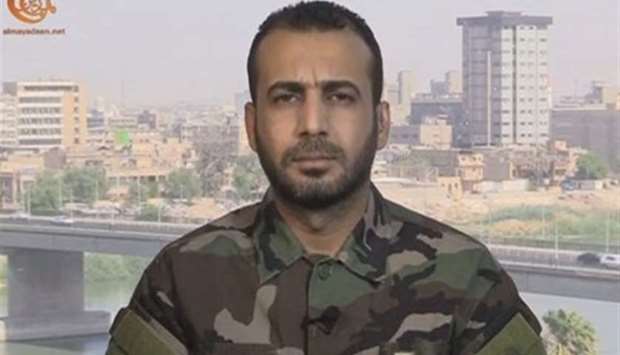Two Iraqi Shia groups backed by Iran are demanding all US forces leave Iraq, opposing plans by Baghdad and Washington to retain some in training and advisory roles.
But Iraqi Prime Minister Haider al-Abadi told reporters US forces were needed "to completely finish the job" of destroying Islamic State in Iraq and Syria.An Iraqi government spokesman said on Monday US forces - who number more than 5,000 - had begun reducing their numbers but some would remain.
The Badr Organization, a Shia group with a minister in Abadi's government in charge of the interior said any remaining US troops would be a cause of instability.
"The two governments should coordinate to ensure a full withdrawal. US presence will be cause for internal polarization and a magnet for terrorists," Badr spokesman Kareem Nuri said.
Kataib Hezbollah, a more militant, secretive and anti-American group, repeated threats to attack US forces.
"We are serious about getting the Americans out, using the force of arms because the Americans don't understand any other language," its spokesman, Jaafar al-Husseini, told Beirut-based al-Mayadeen TV on Monday.
Kataib Hezbollah has strong links to Iran's Revolutionary Guards Corps and has threatened to attack US forces several times in the past, describing their presence as an occupation.
A US official in Baghdad said: "We take anything that sounds like a threat from anyone against Americans seriously."
"There's not that many of us here and we are all operating within Iraqi military bases. A lot of this is frankly just political posturing and trying to take advantage of stories in the press to make broader political points," he said.
The US-led international military coalition helped Iraqi forces recapture territory taken by Islamic State in 2014 and 2015, providing air and artillery support in the battle for Mosul, and trained tens of thousands of elite Iraqi soldiers.
"There is a plan for a gradual drawdown of coalition forces, but the danger is still present in Syria and we need to cover a huge area from the air to monitor the border," Abadi told reporters in Baghdad on Tuesday.
Abadi did not address a question about the specific threats.
"The coalition will tailor our forces in consultation with our Iraqi partners in order to ensure the lasting defeat of Daesh (Islamic State)," its director of operations, Brigadier General Jonathan Braga, said in a statement on Monday.
Braga said even if the composition of the force changes, the coalition would maintain the capabilities and presence to continue to train, advise and equip Iraqi forces to ensure that Islamic State does not re-emerge.
US officials say while Islamic State has lost most of the territory it once controlled in Iraq and Syria, there is concern about fighters returning to insurgency tactics.
Abadi in December declared victory over Islamic State which had proclaimed a "caliphate" over parts of Iraq and Syria in mid-2014. The group continues to carry out attacks and bombings across the country, including in Baghdad.

